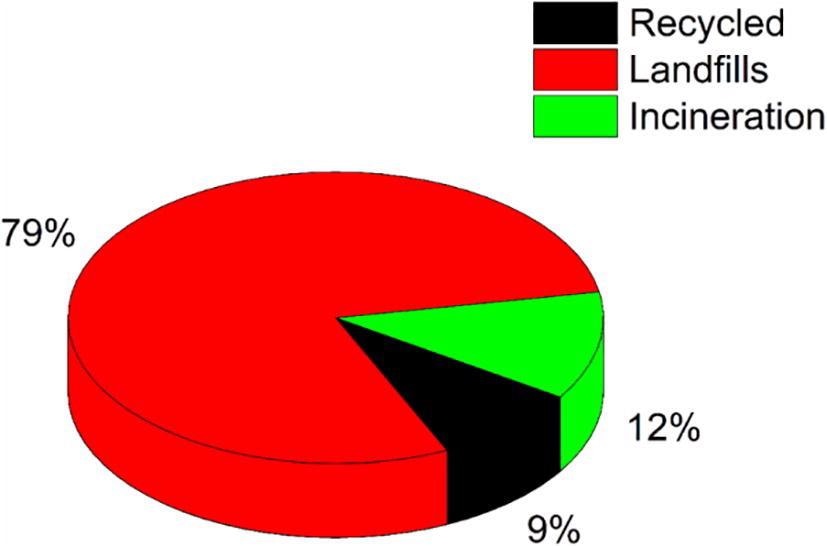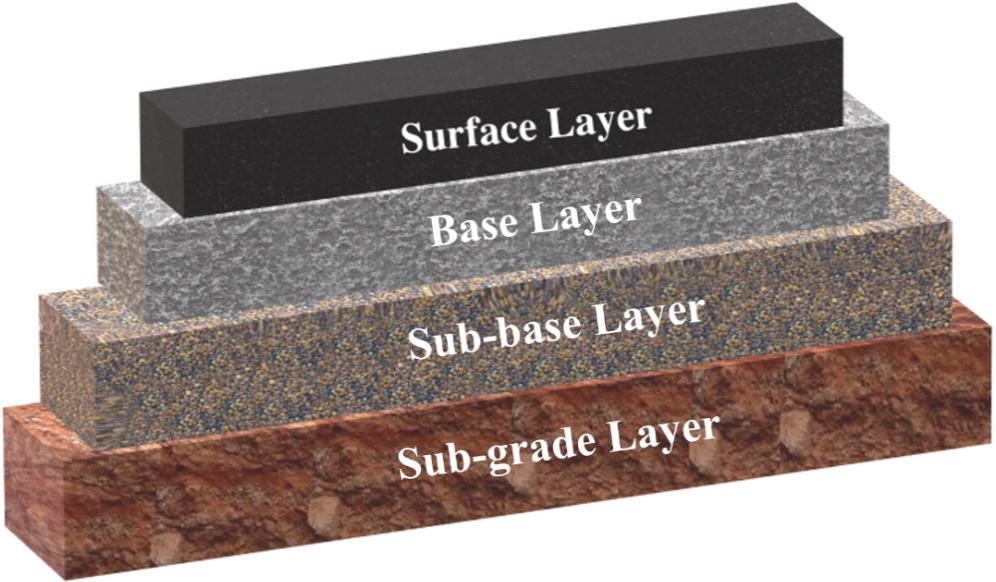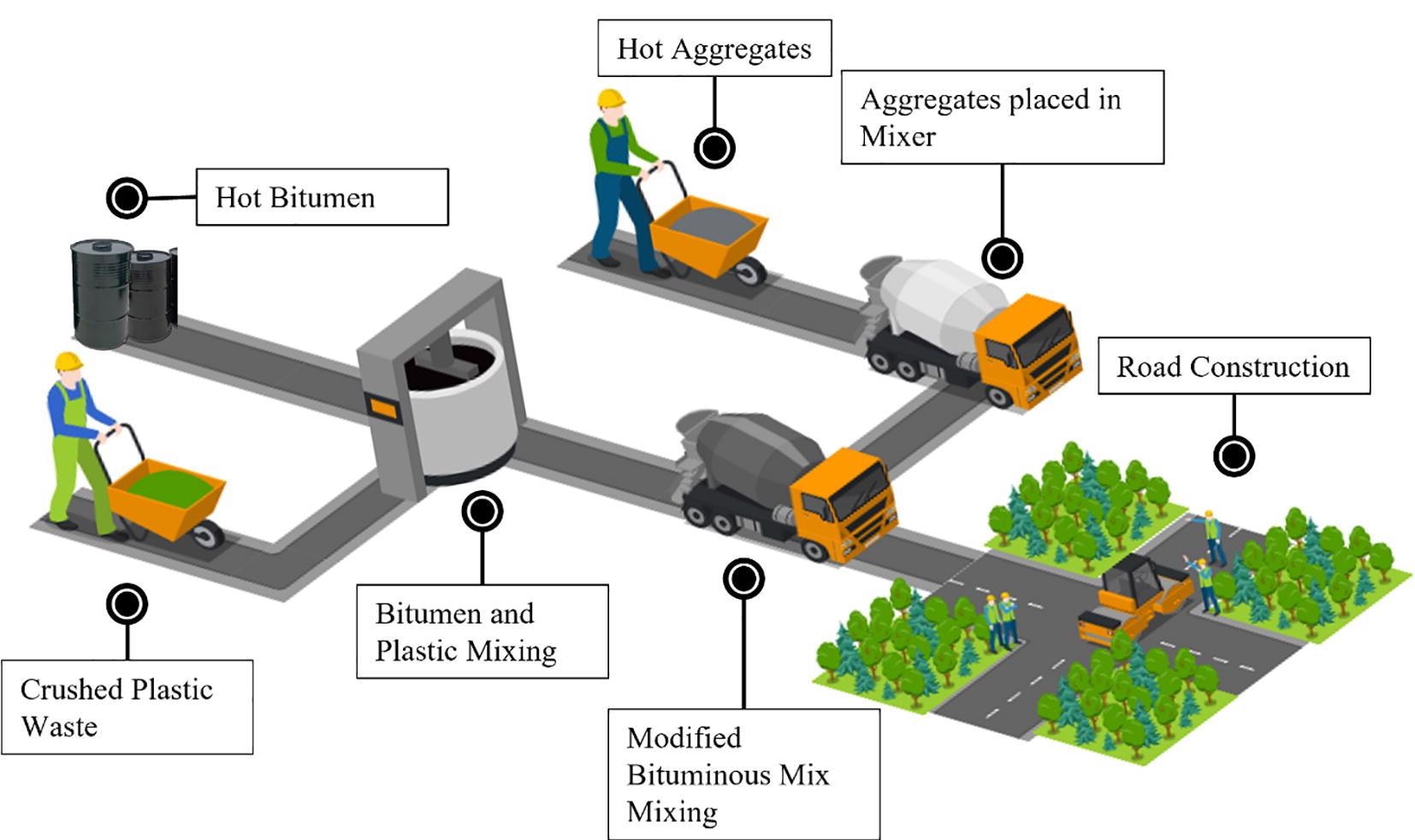A paper, currently in pre-proof for publication in Cleaner Materials, has investigated the use of plastic waste as a modifier in bituminous mixtures for flexible pavements.

Study: A mini-review on the use of plastic waste as a modifier of the bituminous mix for flexible pavement. Image Credit: tcharts/Shutterstock.com
Plastic waste is a growing issue due to population growth, rapid urbanization, and industrial activities. Valorizing plastic waste is crucial to reduce the environmental harm caused by human activities, and one potential valorization route is using plastic waste as a material in pavements.
Valorizing Plastic Waste for Commercial Products
The growth of cities and the world population has led to massive environmental damage. Products that are necessary for society and industry are typically produced in a linear process, where they use virgin resources which are disposed of at the end of their usable life, and in the process, valuable materials are lost. Plastic production is incredibly damaging to the environment, causing greenhouse gas emissions and pollution.

Pie chart of locations for plastic waste. Image Credit: Noor, A & Rheman, M.A.U, Cleaner Materials
Valorizing plastic waste to produce commercially viable products is a cornerstone of the circular economy concept and a key strategy for reducing environmental damage and achieving net-zero carbon emissions in line with international pledges such as the Paris Agreement.
Using recovered plastic waste has been widely explored in sectors such as construction to reduce the need for raw, non-renewable building materials such as concrete. Not only does this reduce the number of virgin materials which are exploited, but it also reduces the carbon emissions from manufacturing, and polymers can confer desirable mechanical and physiochemical properties for construction materials.
Flexible Pavements
With the rapid growth of urban areas and infrastructure comes the need for road surfaces that can withstand repeated use. Many road surfaces are made of flexible pavements which have multiple layers using different materials. These are the surface, base, sub-base, and sub-grade layers.
The performance of the pavement can be influenced by the thickness of each layer. For example, increasing the thickness of the bituminous layer reduces the compressive stress on the sub-grade layer, which is the compacted ground used to support the entire pavement.
Flexible pavements can fail due to several factors, including potholes, stripping, overweight vehicles, and fatigue cracks are a few of these influencing factors. In order to maintain them, a large number of resources are needed, and repair methods can be costly and time-consuming, leading to traffic disruption and increased travel times.
Parameters that influence the thickness of each layer are the load the pavement will have to bear, the materials used in each layer, and the conditions of the area in which the pavement will be constructed.
Many studies have been performed over the years to investigate the optimal thickness of each layer and materials for use as bituminous additives for the surface layer of flexible pavements. Research has aimed to improve the overall mechanical properties of flexible pavements, increasing their service life, and reducing the need for maintenance and unsustainable resource utilization. Many materials have been explored as bituminous additives, including plastic waste, to improve the properties of flexible pavement surface layers.

Layers of Flexible pavement. Image Credit: Noor, A & Rheman, M.A.U, Cleaner Materials
A Mini-Review on Using Plastic Waste as Bituminous Modifiers for Flexible Pavements
In recent years there has been a huge focus on the valorization of waste materials as bituminous additives. Plastic waste is an attractive modifier because its use reduces the environmental impact of the plastics industry and confers improved mechanical properties for flexible pavements. A mini-review of current perspectives and research has been performed by authors from Pakistan, currently in pre-proof in Cleaner Materials.
The authors have noted the challenges associated with using bitumen, the most used binder material in flexible pavement construction, including carbon emissions, softening at high temperatures, and gaseous release during heating, as well as loss of flexibility and increased brittleness at low temperatures. Studies have demonstrated that waste polyethylene and polystyrene can improve bituminous material properties and possess good adhesion properties.

Wet process. Image Credit: Noor, A & Rheman, M.A.U, Cleaner Materials
Some researchers have used virgin plastics for modification purposes. The authors have noted the use of waste plastics from tire production and recycling as modifiers in flexible pavements. Both virgin and recycled plastics improve the properties and performance of the surface layer. Plastic use for this purpose is not new: the first use was reported in 1843. Recent research has been conducted into optimizing modification parameters as well as investigating economic and environmental aspects.
Processing techniques such as wet processing, dry processing, and modified processes have been explored in the mini-review. Amongst plastic waste materials, PET bottles, recycled LDPE from greenhouses, waste PE, PVC, and HDPE pipes, and plastic bag waste have been explored in depth in the current literature for use as bituminous modifiers for flexible pavements. The use of different plastic waste materials as modifiers improves different properties in diverse ways.
In conclusion, the authors have stated that plastic waste improves the chemical stability and mechanical strength of bituminous materials to create robust and durable flexible pavements. Moreover, using plastic waste reduces both environmental impacts and cost in terms of manufacturing and maintenance. The valorization of plastic waste for use as bituminous modifiers in flexible pavements is worth widely implementing.
Further Reading
Noor, A & Rheman, M.A.U (2022) A mini-review on the use of plastic waste as a modifier of the bituminous mix for flexible pavement [online] Cleaner Materials 2022 100059 | sciencedirect.com. Available at: https://www.sciencedirect.com/science/article/pii/S2772397622000193
Disclaimer: The views expressed here are those of the author expressed in their private capacity and do not necessarily represent the views of AZoM.com Limited T/A AZoNetwork the owner and operator of this website. This disclaimer forms part of the Terms and conditions of use of this website.